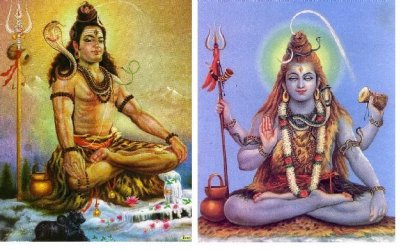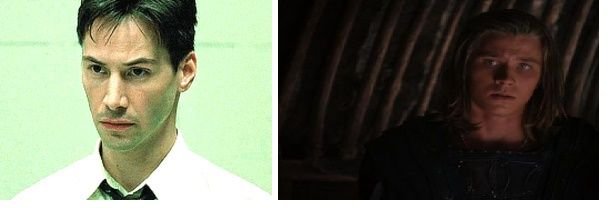- Sep 22, 2013
- 4,956
- 250
- 85
The cyber-punk fantasy sci-fi film The Matrix changed the way we looked at how computer-animation could change the presentation of motion dynamics and resolution graphics on the big screen.
Incidentally, the philosophical ideas presented in this groundbreaking modernism film reveal a new social fascination with 'emergent realities' as they apply to 'perceptual intrigue' itself, which is why psychologists and even neurophilosophers reference this symbolic film (directed by the creative Wachowski brothers).
In the film, a 'pseudo-Messianic' genius computer-hacker named Thomas (hacker-alias 'Neo') discovers he is part of an elaborate 'slave-ship' universe controlled by a race of oppressive A.I. machines intent on controlling humanity's dreams while they sleep. This 'fantastic reality' Neo realizes as the truth compels him to join the human resistance to the A.I. 'regime' and don the mantle of 'anti-machine Messiah' and in doing so, he starts to understand the philosophical implications of 'minds connected by intentionality' (if not emotion).
This unusual and visually creative sci-fi film illuminates our modern civilization interest in 'network geometries,' 'cerebral decision-making,' 'automated production,' and of course, 'Orwellian paranoia.'
We've all seen/read various philosophical ideas regarding Orwellian empires, A.I. dominions, and mind-control realities and brainwashing states (e.g., Nazi Germany), but the specific 'idea' introduced in The Matrix motivates us to think about how pop-culture art in the modern era speaks to a developed human species interest in 'systems integration' thinking.
How does Wal-Mart make us feel about consumerism? How does On-Demand cable TV make us feel about broadcasting? How does nationalized commerce (e.g., Wall Street) make us feel about governance? How does the vastly-connected modern Internet make us feel about self-determined scientific progress?
These are the philosophical 'orientations' presented in The Matrix and arguably other sci-fi films/stories by avant-garde minds such as Isaac Asimov and George Lucas.
Interesting to note that behind any 'formulation' of an exact or efficient 'system' (be it organic or silicon) is the imagination of a shapeless/shape-shifting 'presence' or 'creature' even, pointing to the modern-age interest in sci-fi horror films (about morphing 'entities') such as The Blob, Leviathan, and The Thing.
How does such 'creative progress' affect our perspective on metaphysics (and even fashion)?
====
GOD: The Industrial Revolution and the Computer Age has changed population management.
SATAN: Yes, and this is imprinted in the political leadership of FDR and the business leadership of Bill Gates!
GOD: Will American women stop wearing ribbons in their hair?
SATAN: No. Women will always appreciate the value of individualism even in times of 'empire-building.'
GOD: What about Nazi Germany?
SATAN: I don't think we should compare fascism with industrialization...
GOD: True, but industrialization/commerce-relevant institutions/infrastructures such as the FDA are 'systemic.'
SATAN: What do you mean by 'systemic'?
GOD: I mean an organized 'intention' to create mass-psychology networking 'protocols.'
SATAN: Oh, you mean Facebook and MTV?
GOD: Precisely. For every 'systemic' move towards uniformed population behavior, there is a 'retaliation.'
SATAN: That would imply the 'presence' or 'entrance' of an amorphous/anarchic 'blob' or 'faceless monster.'
GOD: Isn't that why Americans like 'monstrosity-themed' films such as Leviathan and Resident Evil?
SATAN: I suppose there may be a 'link' between 'systemic development' and 'trend governance.'
====

Incidentally, the philosophical ideas presented in this groundbreaking modernism film reveal a new social fascination with 'emergent realities' as they apply to 'perceptual intrigue' itself, which is why psychologists and even neurophilosophers reference this symbolic film (directed by the creative Wachowski brothers).
In the film, a 'pseudo-Messianic' genius computer-hacker named Thomas (hacker-alias 'Neo') discovers he is part of an elaborate 'slave-ship' universe controlled by a race of oppressive A.I. machines intent on controlling humanity's dreams while they sleep. This 'fantastic reality' Neo realizes as the truth compels him to join the human resistance to the A.I. 'regime' and don the mantle of 'anti-machine Messiah' and in doing so, he starts to understand the philosophical implications of 'minds connected by intentionality' (if not emotion).
This unusual and visually creative sci-fi film illuminates our modern civilization interest in 'network geometries,' 'cerebral decision-making,' 'automated production,' and of course, 'Orwellian paranoia.'
We've all seen/read various philosophical ideas regarding Orwellian empires, A.I. dominions, and mind-control realities and brainwashing states (e.g., Nazi Germany), but the specific 'idea' introduced in The Matrix motivates us to think about how pop-culture art in the modern era speaks to a developed human species interest in 'systems integration' thinking.
How does Wal-Mart make us feel about consumerism? How does On-Demand cable TV make us feel about broadcasting? How does nationalized commerce (e.g., Wall Street) make us feel about governance? How does the vastly-connected modern Internet make us feel about self-determined scientific progress?
These are the philosophical 'orientations' presented in The Matrix and arguably other sci-fi films/stories by avant-garde minds such as Isaac Asimov and George Lucas.
Interesting to note that behind any 'formulation' of an exact or efficient 'system' (be it organic or silicon) is the imagination of a shapeless/shape-shifting 'presence' or 'creature' even, pointing to the modern-age interest in sci-fi horror films (about morphing 'entities') such as The Blob, Leviathan, and The Thing.
How does such 'creative progress' affect our perspective on metaphysics (and even fashion)?
====
GOD: The Industrial Revolution and the Computer Age has changed population management.
SATAN: Yes, and this is imprinted in the political leadership of FDR and the business leadership of Bill Gates!
GOD: Will American women stop wearing ribbons in their hair?
SATAN: No. Women will always appreciate the value of individualism even in times of 'empire-building.'
GOD: What about Nazi Germany?
SATAN: I don't think we should compare fascism with industrialization...
GOD: True, but industrialization/commerce-relevant institutions/infrastructures such as the FDA are 'systemic.'
SATAN: What do you mean by 'systemic'?
GOD: I mean an organized 'intention' to create mass-psychology networking 'protocols.'
SATAN: Oh, you mean Facebook and MTV?
GOD: Precisely. For every 'systemic' move towards uniformed population behavior, there is a 'retaliation.'
SATAN: That would imply the 'presence' or 'entrance' of an amorphous/anarchic 'blob' or 'faceless monster.'
GOD: Isn't that why Americans like 'monstrosity-themed' films such as Leviathan and Resident Evil?
SATAN: I suppose there may be a 'link' between 'systemic development' and 'trend governance.'
====





